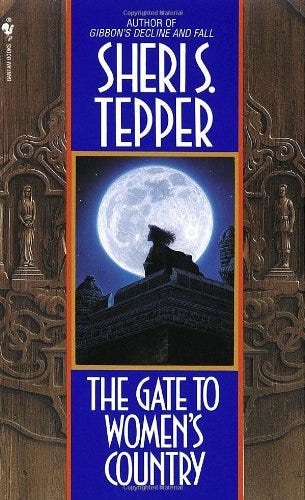So What, Who Cares (vol 1, issue 36) How wearables could become the first female-led tech sector
Happy Monday evening/Tuesday morning, depending on when you open this. Let's ease into this week, yes?
*
"The computer is the most extraordinary clothing ever devised by man, since it is the extension of our nervous system." Marshall McLuhan, 1968

"This is a very masculine watch." -- Eric Wilson, fashion news director for Instyle.com, on the design of the Apple Watch.
Wearable technology is widely considered to be the next big growth category in personal electronics, and it is very likely going to be the first tech boom that lives and dies on the preferences of women. Take the fitness band genre of wearable devices; the FitBit enjoys gender parity among users, in no small part because the design team that developed the product line realized early on that women wanted discreet, attractive technological wearables, because the point of wearing the FitBit was not to display forward-thinking tech trend preferences, but to monitor their health unobtrusively. FitBit worked because it recognized societal attitudes about women and weight management. Then the use of the FitBit became the "Does she or doesn't she? Only her hairdress knows for sure" of wearable cachet.
The big question is: Who will score big in the multibillion-dollar wearables market? The answer: Companies that know how to sell design as the differentiating factor, not chip architecture. Silicon Valley and Seventh Avenue are beginning to take lunch together in what each hopes will be the beginning of a beautiful friendship.
So what? It's notable that this weekend, Hack the Gender Gap will be taking place at West Virginia University, with a specific focus on wearables. This is part of a big-picture effort to craft a better pipeline to Silicon Valley, as the wearables category is unusual for a hardware category in that it sports a lot of female founders. Between the well-established idea that designing for women is vital in the wearables category and the early-market advantage, this could be one area where the gendered norm in tech is not male.
Who cares? Aside from women who want to work in tech, or have tech objects scaled to their hands or taste?
If mobile devices and web-based apps shifted the definition of "personal computing" away from "licensed software on one computer you had to go and sit at" to "liquid computing that you can access from any device any where," wearable computing is nudging the definition even further afield to "unobtrusive data appliances that do all the work for you." Computers become ... commodities -- specialized appliances that are cheap and easy to produce via 3D printer, for example. Who wouldn't want to go into business with a few industrial 3-D printers and rent them out to their local maker community?
And computers become as easy to buy as a t-shirt -- which means that tech companies are going to have to start paying attention to consumer tastes. They can also discover new ways to make money -- like a back brace for scoliosis patients that will soon have teen girls wondering what on earth Deenie was on about.
*

Your pop culture note of the day ... will return. I threw my first kiddie birthday party this weekend and I am still recovering. On Saturday evening, I took to my bed and re-read Sheri S. Tepper's Jinian Star-Eye series, a trio of books that truly showcase a number of the most baffling trends 1980s fantasy could impose on a puzzled readership. (So many magical elements, such ridiculous names ...) It sure was fun explaining to the kiddo why someone thought it was a good idea to wear a halter top into battle!
And for those of you who are all, "Sheri S. Who?" ... she's an ecofeminist fantasy writer whose work is fiercely, uncompromisingly idealistic. Her gift for world-building and her ability to make readers invested in the outcome of prickly, flawed protagonists are sublime.
If you'd like a gentle introduction to her work, I recommend The Gate to Women's Country. Then move on to Beauty (which is "What would happen if we transplanted Sleeping Beauty to the end of the world, courtesy of a time-traveling documentary filmmaker?") and from there to the Arbai Trilogy. (Because it is a rule, you see: It's not fantasy unless there's a trilogy at some point.)
Tepper has a new book coming out on October 21 -- Fish Tales -- which promises appearances by several characters from her 34 preceding novels. It goes without saying that I've already pre-ordered it and will be reloading my Kindle as soon as I wake up on Tuesday.
*
Did you miss an issue of So What, Who Cares? The archive is here. Also, there is now a topic index that tells you what was in each issue. If you're like, "I remember there was an issue with otters in it, but when ...?" -- well, now you can find it. (It was September 24, btw.)
As always, I welcome your feedback and suggestions via email or Twitter. Always let me know what you think about So What, Who Cares? If you really like it, tell a friend to subscribe.

